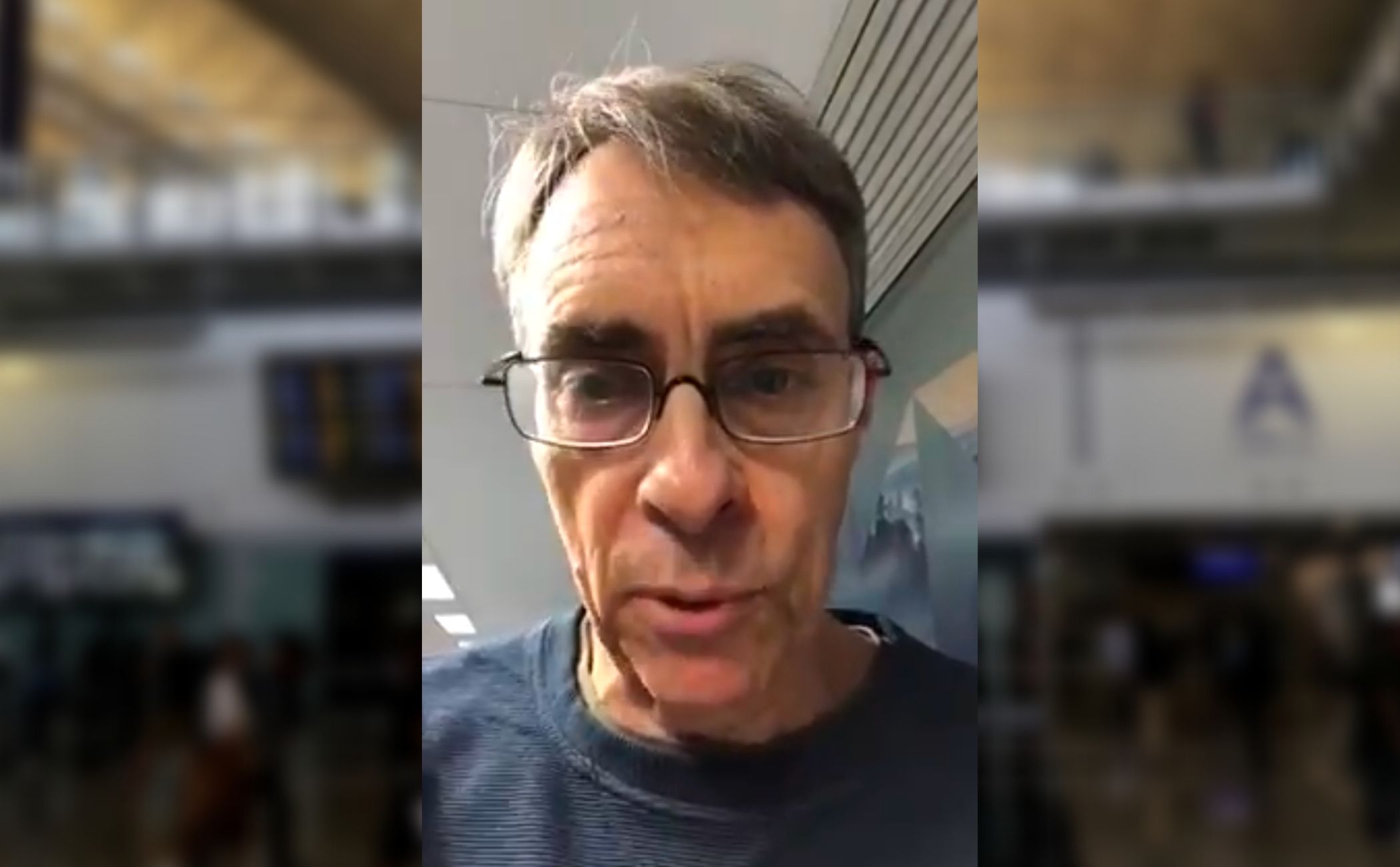The head of the international NGO Human Rights Watch was denied entry into Hong Kong on Sunday ahead of the planned launch of a report on Beijing’s efforts to undermine global human rights standards, a move one legal expert said was “definitely” politically motivated.
Kenneth Roth, the executive director of the New York-based group, said officials did not specify the grounds for barring him from the city — a first for him, after several trips in the past, he noted. However, after some seven months of anti-government protests, which the mainland has accused HRW and other similar groups of fomenting, Roth and others were quick to see Beijing’s hand in the move.
“This year [HRW “World Report”] describes how the Chinese government is undermining the international human rights system. But the authorities just blocked my entrance to Hong Kong, illustrating the worsening problem,” Roth said in a Twitter post.
I flew to Hong Kong to release @HRW’s new World Report. This year it describes how the Chinese government is undermining the international human rights system. But the authorities just blocked my entrance to Hong Kong, illustrating the worsening problem. https://t.co/GRUaGh8QUb pic.twitter.com/iTHVEXdbwO
— Kenneth Roth (@KenRoth) January 12, 2020
He explained that he had never previously had any problem entering Hong Kong, including for a trip in April 2018 to release a report on gender discrimination in the mainland job market. Roth added that officials had merely cited “immigration reasons” as their justification for barring him from Hong Kong.
HRW had planned to release its 652-page “World Report 2020” at the Foreign Correspondents Club (FCC) in Hong Kong this Wednesday.
In a statement today, the FCC said it was “concerned that the Hong Kong government is using the immigration department to act punitively against organisations and media representatives it does not agree with, which is a violation of the commitment to free expression and free speech in Hong Kong law.”
Anson Wong Yu-yat, a local human rights lawyer, said the decision was indicative of a lack of transparency on the part of the Immigration Department.
“From what I have learnt, the Hong Kong Immigration Department is independent [from the mainland] but they do have a blacklist of people whose entry will be denied. If you are not a permanent resident of Hong Kong but somebody else such as tourists or others, they can have any reasons to bar your entry,” Wong said.
Asked if he believed the refusal to grant Roth entry was political, Wong replied, “yes, definitely.”
Typically, U.S. citizens like Roth enjoy visa-free 90-day entry into Hong Kong.
A spokesperson for the Hong Kong Immigration Department told Coconuts HK in a statement today that it did not comment on individual cases, only saying that it considered “all relevant factors and circumstances” before deciding whether to grant a traveler entry.
Mainland officials, however, weren’t so shy about stating the reasons for turning Roth away.
“Allowing or not allowing someone’s entry is China’s sovereign right,” Foreign Ministry spokesman Geng Shuang said of the matter. “Plenty of facts and evidence show that the relevant NGO has, through various means, supported anti-China radicals, encouraged them to engage in extremist, violent and criminal activity, and incited Hong Kong independence separatist activities.”
“They bear major responsibility for the current chaos in Hong Kong,” he added. “These organisations should be punished, and should pay the proper price.”
He did not, however, list the purported “evidence.”
The nationalist tabloid the Global Times, meanwhile, went a step further, saying Roth’s presence in Hong Kong “would likely instigate riots,” calling the decision to bar him a “reasonable move.”
Amid the sustained anti-government protests, immigration authorities have reportedly denied entry to several foreign journalists, political activists, and scholars, including award-winning American photographer Matthew Connors, who was barred earlier this month after covering the protests last year.
In barring Roth, the mainland appeared to be making good on threats — issued in retaliation for the U.S.’s passage of the protester-backed Hong Kong Human Rights and Democracy Act — to levy unspecified sanctions against U.S. NGOs it accuses of stirring up dissent.
HRW said in a statement that in light of the events, they would now be launching report on Tuesday at the United Nations headquarters in New York.
In a later tweet, Roth went on to describe the apparent irony of Beijing’s stance.
“If you think about it: hundreds of thousands of protesters have taken to the streets of Hong Kong to defend democracy, and the authorities block me and Human Rights Watch from holding a press conference,” he said. “Beijing should be listening, not censoring.”
Reporting by Erin Chan.





Reader Interactions